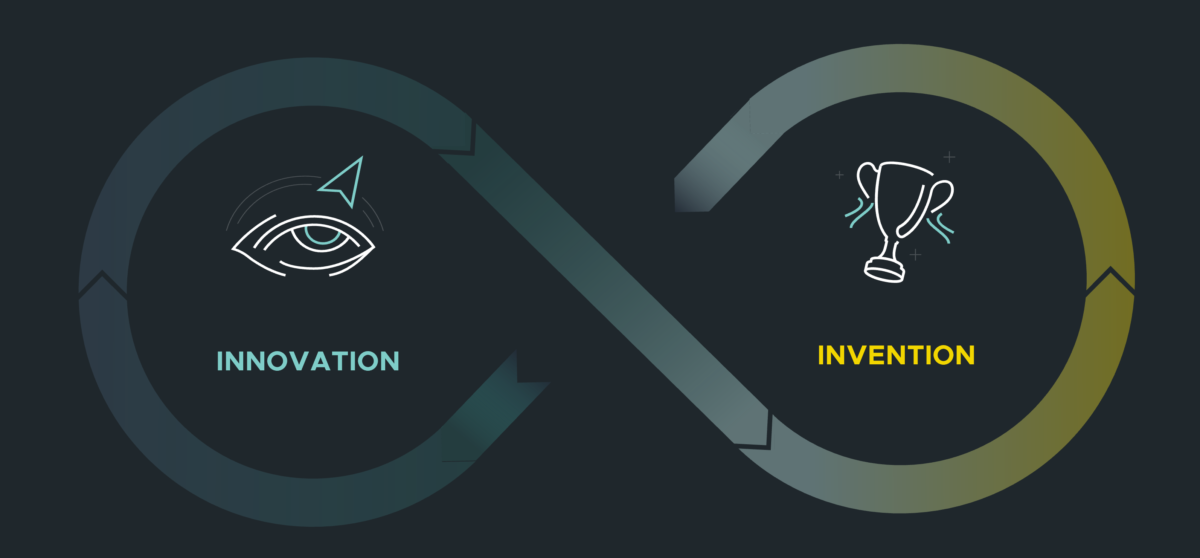Introduction
Terminology matters and even ostensibly obscure disagreements about it can lead to suboptimal results. This is best illustrated by a myth on the origin of languages as told by the Sanpoil tribe of North America.
In the myth, the fact that there are many different languages today is traced back to a disagreement about the noises made by ducks in flight.
Before the disagreement, everyone spoke the same language and belonged to the same great community. Friction and borders were kept to a minimum and efficiency was the order of the day. After the duck controverse, this sublime state was however forever altered. People divided into different tribes and started to speak different languages, leading to a slew of new and unexpected problems.
Unfortunately for us, there are waddlings of metaphorical ducks lurking everywhere in the field of innovation. Our job for today will be to clarify two commonly blurred distinctions. In that way, we hope to provide some clarity for both experienced innovation practitioners looking for a refresher and innovation novices who are looking to break into the field.
What is Invention?
A first dispute that arises lies directly at the heart of the field of innovation and has to do with the common confusion between invention and innovation.
Invention today is not a very popular term. In the eyes of some readers, it might even conjure up images of mad professors creating superheroes and/or villains, but it is a supremely useful term to know, as feats of invention are often mislabeled under innovation.
This conflagration makes it psychologically harder for people to think themselves capable of innovation and in turn discourages people and organizations to get involved with setting up innovation efforts themselves.
To combat the confusion, we must therefore begin with answering the basic question of this section, namely what is invention? According to Merriam-Webster, invention can be defined as follows:
Definition of InventionMerriam Webster
- something invented: – such as
a device, contrivance, or process originated after study and experiment
a product of the imagination (especially : a false conception)- a short keyboard composition featuring two- or three-part counterpoint
- the act or process of inventing
- productive imagination : inventiveness
- discovery, finding
Crucially, in all the definitions of invention given above which are relevant to the modern business landscape, invention resolves around the creation of something wholly new and original. This can be material or immaterial and is still a very broad definition. As we shall see in the next section however, this differs from innovation in one important aspect. Inventions are not required to be used in order to count as inventions. You could create a most brilliant new contraption but then leave it to gather dust in your garage. Inventions can thus only deliver economic value (beyond the pleasure of creating them) when they have been successfully converted into an innovation.
What is Innovation?
As stated above, you do not necessarily need to create something completely new to become an innovator. Having some skills as an inventor is certainly a nice-to-have, but there are comparatively few people who combine both skillsets.
Rather, innovators’ most important skillset is to understand customer needs. They can then take pre-existing “inventions” in the broadest explanation of the word and use (several of) these to create a solution for which customers are willing to pay.
Innovation is thus not about the invention of something new, but about the introduction of something new. More specifically in a business context, this can be narrowed down even further, as innovation is always about the commercialization of the new.
What is the difference between innovation and invention?

Now that we have taken our time to define innovation and invention separately, we bring the two concepts together one final time. As stated above, invention is the word we use to describe the act of creating something new, while innovation is the word, we use to describe the introduction/commercialization of the invention to a wider audience.
If we simplify the situation a bit, we can say that invention usually precedes the innovation process. After all, something usually needs to be invented before it can be marketed and sold to customers (unless you are Nikola, then you just push your prototype down the hill and let gravity do all the work). Invention and innovation are thus cyclically related to one another, locked in a complex dance in which every new invention sets up a myriad of possibilities for innovation. Each of these innovations will then in turn opens the path to more and more inventions to add to the initial find as products and services get refined through time.
If you want to learn more about innovation, we have a very good primer on the Open Innovation paradigm that tries to answer all of the frequently asked questions on this topic.

Arjan Keijser is a Senior Innovation & Change Management Consultant at SteepConsult
After having amassed a wealth of experience in Innovation & Change Management, Arjan joined SteepConsult to support our transition towards an innovative, solution-oriented, and sustainable future. As our in-house intellectual, he enjoys sharing his knowledge with customers and colleagues alike.
Reference List
Alighieri, D. (2009). The Divine Comedy (H. F. Cary, Trans.). Wordsworth Editions.
Campbell, P., & Bushey, C. (2020). Nikola admits rolling truck down hill as it counters ‘fraud’ claims. Financial Times. Retrieved from here
Crilly, N., & Firth, R. M. (2019). Creativity and fixation in the real world: Three case studies of invention, design and innovation. Design Studies, 64, 169-212.
Gould, M.K. (1917). IV. Sanpoil Tales: 14. The Origin of Different Languages. In F. Boas (ed.), Folk-Tales of Salishan and Sahaptin Tribes (pp. 111-112). American Folk-Lore Society. Retrieved from here
Godin, B. (2019). The invention of technological innovation: Languages, discourses and ideology in historical perspective. Edward Elgar Publishing.
Roberts, E. B. (1988). What we’ve learned: Managing invention and innovation. Research-Technology Management, 31(1), 11-29.
Roberts, E. B. (2007). Managing invention and innovation. Research-Technology Management, 50(1), 35-54.


